Let your home put up the cash for its own improvements (but not for that new sports car).
With home values rising, homeowners who have equity, like a home equity loan, a much-valued resource, might be tempted to tap some of that wealth and use it for other purposes. But depending on your personal situation and how you’d like to use the equity, it may not necessarily be the right thing to do.
Here’s when a home equity loan, which allows you to use the equity of your home as collateral, makes sense — and when it doesn’t.
DON’T: Fund a lifestyle
Remember a decade ago when homeowners yanked cash out of their homes as if they were bottomless piggy banks to fund affluent lifestyles they couldn’t really afford? These reckless borrowers, with their boats, fancy cars, lavish vacations, and other luxury items, paid the price when the housing bubble burst. Property values plunged, and they lost their homes, as they got more into debt, that’s why now a days people is trying to improve these situations now a days, and if this is your situation, you should understand debt consolidation and how to use this for your advantage. Why not ask about us regarding the best debt consolidation plans that can create and help you become a debt free individual!
Lesson learned: Don’t squander your equity! A home equity loan should be looked at as an “investment,” and not as “extra cash” when making spending decisions. Plus, if you have mortgage concerns, you must check your available options like best 15-year fixed mortgage rate in KS and other places before seeking the services of any one mortgage company.
DO: Make home improvements
The safest use of home equity funds is for home improvements such as garage door repairs that will add to the home’s value. If you have a one-time project (for example, you need to repair your garage doors), then a home equity loan might make sense.
Need access to money over a period of time to fund ongoing home improvement projects? Then a home equity line of credit (HELOC) would make more sense. HELOCs let you pay as you go, and usually have a variable rate that’s tied to the prime rate, plus or minus some percentage.
DON’T: Pay for basic expenses/bills
This is a no-brainer, but it’s always worth reiterating: basic expenses like groceries, clothing, utilities, and phone bills should be a part of your household budget.
If your budget doesn’t cover these and you’re thinking of borrowing money to afford them or you’re looking for a payday loan, it’s time to rework your budget and cut some of the excess.
DO: Consolidate debt
Consolidating multiple balances, including your high-interest credit card debts, will make perfect sense when you run the numbers — who doesn’t want to save potentially thousands of dollars in interest?
Debt consolidation will simplify your life, too, but beware: It only works if you have discipline and if you find online loans bad credit lenders. If you don’t, you’ll likely run all your balances back up again, and end up in even worse shape.
DON’T: Finance college
This may seem like an attractive use of home equity for those with college-age children. However, the potential consequences down the road could be significant. And risky.
Remember, tapping into your home equity may mean it takes you longer to pay off the loan. It also may delay your retirement, or put you even deeper in debt. Furthermore, as you get older, it will likely be more difficult to earn the money to pay back the loan. Don’t jeopardize your financial security.
BY VERA GIBBONS ON 23 FEB 2016




Leave a Comment